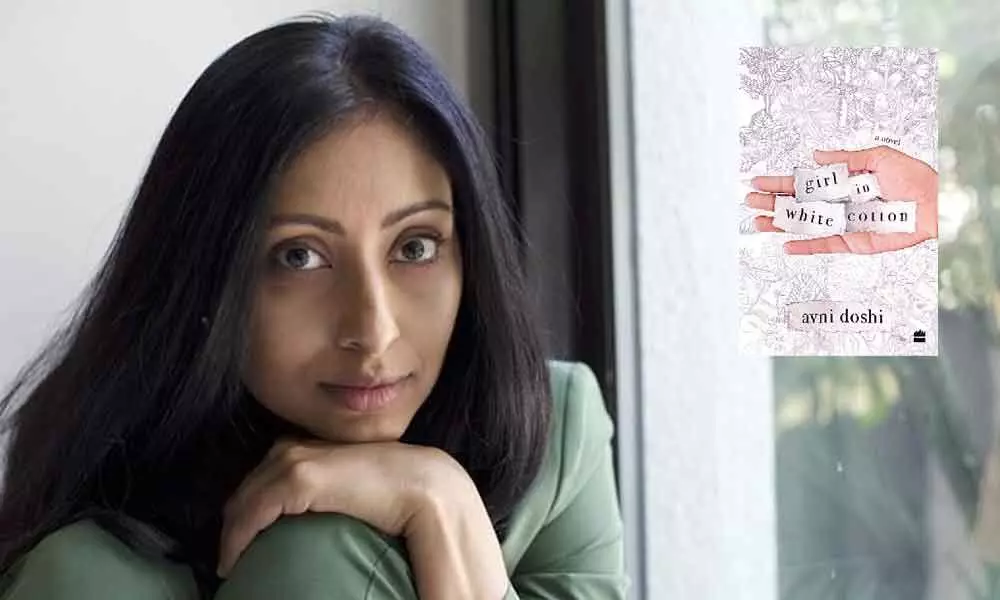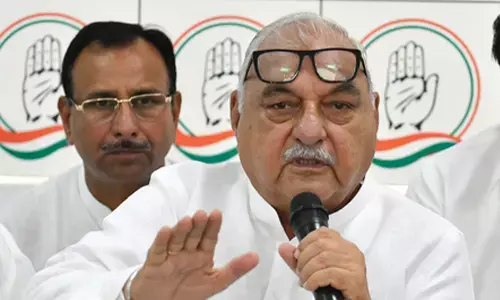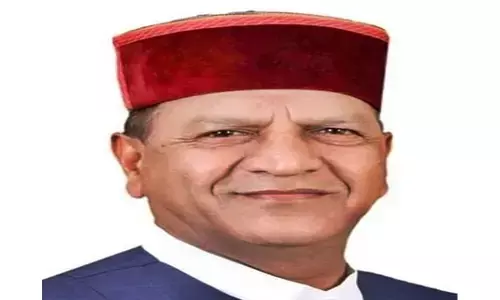The enigma of the dark

There is something about dark places that never fail to fascinate her.
There is something about dark places that never fail to fascinate her. She never runs away from them, even when a little voice in her head tells her to watch her step. She says it is only when one looks at a character's eclipsed side that his/her different facets truly come to light.
"I like exploring the unconscious drives that my characters undergo do something that's truly out of their character. Those are always the interesting things for me – in my characters and the real people I come across," smiles author Avni Doshi, who was in Delhi recently.
Talk to this author of the recently released 'Girl in White Cotton', published by HarperCollins India, that the book took eight drafts in seven years to finally reach its destiny, she says, "Now, it's difficult to even think about that. I have amnesia, while I liked some drafts, many I can barely remember at all.
I think they all were a learning process and important to the final product. Now, if I had to set out with the thought of spending that much time on my next book, I don't think I would be able to as it seems like a lifetime. In retrospect, I can see the kind of mistakes that I made and I have definitely learnt so much and I don't think the subsequent novels would be so time-consuming."
During the lengthy writing process, it was 'the voice' that proved to be her clue that she had hit something right. It was that of the daughter, with something very bare, raw and almost cruel about it. "The moment it came about, I knew instantly that it would carry me to the end of the story and beyond."
An art historian and curator by training, Dubai-based Doshi, who grew up in the United States is busy turning her drafts into an artwork. She laughs that her husband and she excel at failing. "He at golf, and me at writing.
So, I took his golf balls and covered them in my manuscripts, so they kind of looked like garbage. I have placed them in a grid and framed it --- a grid-like calendar of our daily failures. It's hanging there…a constant reminder for us."
Insisting that her favourite parts of the book have come out of mistakes or experimenting with something that she was not sure of succeeding, Doshi adds, "Frankly, I feel that it is in failure that the most interesting and creative moments lie."
The kind of attention the book is receiving, with Doshi being invited as a panelist at major literature festivals, is she now comfortable calling herself a novelist? "Can I? I keep looking around for permission. And at festivals, I have to keep pinching myself when I am sitting with writers who I look up to."
However, it is being a writer that she identifies most closely with and not an art curator for she has always felt much outside the art world. "Maybe because I was lacking the passion for the subject and also, I feel I have a desire to make and create.
Now I have found what I have always wanted to do. Writing allows me to be deep into the creative process on my own terms, have a real sense of control. There is something about writing that you can be a control freak because it is you and the page.
I like having a sense of control although there is always a gap between what you want to say and what finally comes out on the page. It's never perfect. Once in a while, you get it perfect and that's a great pleasure."
Doshi is quite comfortable with the loneliness that comes with writing. Admitting that she does fall into bouts of depression and sadness, especially when the work is not going well; but the moment things start working well on paper, alienation seldom comes close.
"Also, I try to maintain as full a life as I can. I used to live a very hermit life while writing the last draft –locking myself up, distancing myself from people—wake up at 4 in the morning and go to sleep at 6 pm.
But now, with a little child, I am learning the many new ways to write, with him sitting at my feet, playing and making a mess."
The author who has started writing fragments of her next novel says she did try writing some short stories but "all were terrible". "I am in such awe of people who write brilliant short stories.
It's such a talent to have that economy with sentences and words. I just don't think I can do it yet, of course, I am going to keep trying."
All praise for young debut women writers including Madhuri Vijay ('The Far Field'), the writer believes in sparing herself the torture of giving herself timelines.
"What's the point? I once wanted to write 5000 in a week. What turned out were 5000 words of nonsense! I am not sure if timelines can get me anywhere faster."









